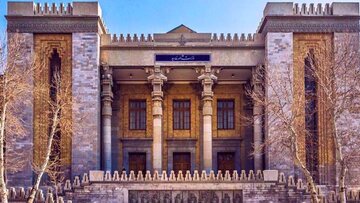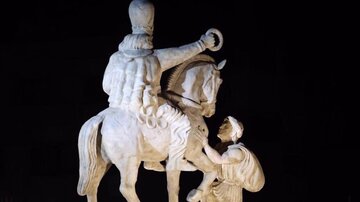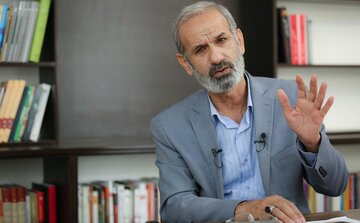The Grand Zanjan Husseiniya is world-famous for hosting a large gathering on 8th day of Muharram, the Day of al-Abbas, which is specifically allocated to Hazarat Abolfazl whose martyrdom was the symbol of loyalty in Karbala.
Muharram is the first month of the Islamic calendar. The importance of this month for Shi'a Muslims is because of the tragedy of Karbala and the martyrdom of Imam Hussein (AS), the grandson of Prophet Muhammad (PBUH), and 72 of his loyal companions in the battle of Karbala on Ashura day (Muharram 10, 61 AH).
After the martyrdom of the third Shi’a Imam in Muharram, this month turned into the month of mourning ceremonies for Shi'a Muslims in the world, and Ashura day held special significance within Islam.
Today, holding large-scale mourning ceremonies and rituals in Muslim communities around the world conveys the message that “Every day is Ashura and every land is Karbala.”
Like all Shia Muslims around the world, Iranian people in all cities observe mourning ceremonies of Muharram month with their own local rituals and traditions in different religious venues to commemorate the courageous martyrdom of their beloved Imam.
Known as the capital of passion and recognition for Imam Hossein (AS), the Zanjan province of Iran annually attracts hundreds of thousands of mourners from Iran and foreign countries to attend the mourning ceremonies of Great Husseiniya of Zanjan.
Having a history of more than a century, the Great Husseiniya of Zanjan is one of the religious places of Zanjan which has been dedicated by two of the city’s benefactors, Haj Mirza Mohammad Naghi and Haj Mirza Babaei.
The famous gathering or mourning procession of Great Hoseiniyah of Zanjan is annually participated by almost 500,000 mourners on the Day of al-Abbas who walks a distance of more than 2 kilometers from Great Husseiniya towards the Imamzadeh Seyyed Ibrahim to display their lamentation for the Shiite Imams, especially Imam Hussein (AS).
In this mourning procession which takes place from mid-day prayer to noon prayer, mourners in black attire show their sorrow by beating their chests in mourning to the tune of beating drums and rehearsing sad poems alongside the Maddah (eulogist) who sings the sad poems with a specific rhythm about Karbala incidents, and Imam Hussein (AS).






Your Comment